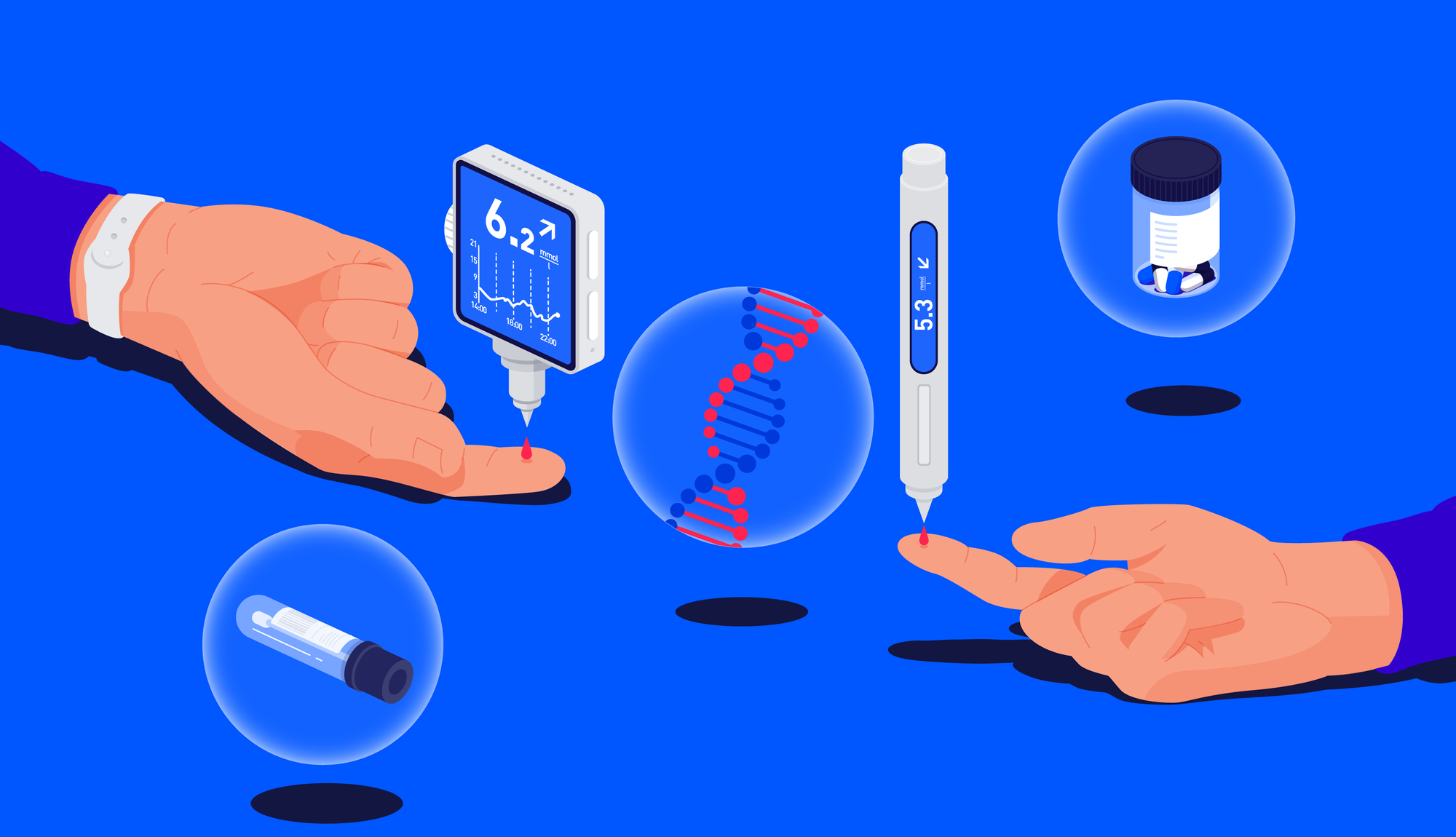
Diabetes is a chronic condition characterized by elevated blood sugar levels. This condition occurs due to either insufficient insulin production in the body or the body’s inability to use insulin effectively. Diabetes can have serious implications for health if not properly managed. Let’s explore the main types of diabetes and their consequences.
Types of Diabetes:
Type 1 Diabetes (Insulin-dependent diabetes): This type of diabetes develops when the body’s immune system mistakenly attacks and destroys the insulin-producing cells in the pancreas. People with type 1 diabetes require daily insulin injections to maintain normal blood sugar levels.
Type 2 Diabetes (Non-insulin-dependent diabetes): Type 2 diabetes occurs when the body becomes resistant to insulin or doesn’t produce enough insulin to maintain normal blood sugar levels. This type of diabetes is often associated with lifestyle factors such as obesity, poor diet, and lack of physical activity.
Gestational Diabetes: Gestational diabetes develops during pregnancy and usually resolves after childbirth. However, women who develop gestational diabetes are at an increased risk of developing type 2 diabetes later in life.
Consequences of Diabetes:
Cardiovascular Complications: Diabetes significantly increases the risk of heart disease, stroke, and other cardiovascular problems. High blood sugar levels can damage blood vessels and nerves, leading to atherosclerosis and hypertension.
Nerve Damage (Neuropathy): Prolonged high blood sugar levels can cause nerve damage, leading to symptoms such as numbness, tingling, and pain, particularly in the extremities. Severe neuropathy can affect mobility and quality of life.
Kidney Disease (Nephropathy): Diabetes is one of the leading causes of kidney failure. Persistent high blood sugar levels can damage the kidneys’ filtering system, leading to protein leakage in the urine, fluid retention, and eventually, kidney failure.
Eye Problems (Retinopathy): Diabetes can damage the blood vessels in the retina, leading to diabetic retinopathy, a condition that can cause vision loss or blindness if left untreated.
Foot Complications: Diabetes can impair blood circulation and nerve function in the feet, increasing the risk of foot ulcers, infections, and in severe cases, amputation.
Management of Diabetes:
Healthy Lifestyle: A balanced diet, regular exercise, maintaining a healthy weight, and avoiding smoking are crucial for managing diabetes effectively.
Medication: Depending on the type and severity of diabetes, medication such as insulin injections, oral hypoglycemic agents, and other medications may be prescribed to control blood sugar levels.
Monitoring: Regular monitoring of blood sugar levels, blood pressure, cholesterol levels, and kidney function is essential for managing diabetes and preventing complications.
Education and Support: Diabetes education programs and support groups can help individuals learn how to manage their condition effectively, make healthy lifestyle choices, and cope with the emotional challenges of living with diabetes.
In conclusion, diabetes is a serious health condition that requires lifelong management to prevent complications and improve quality of life. With proper treatment, lifestyle modifications, and regular monitoring, individuals with diabetes can lead healthy and fulfilling lives.